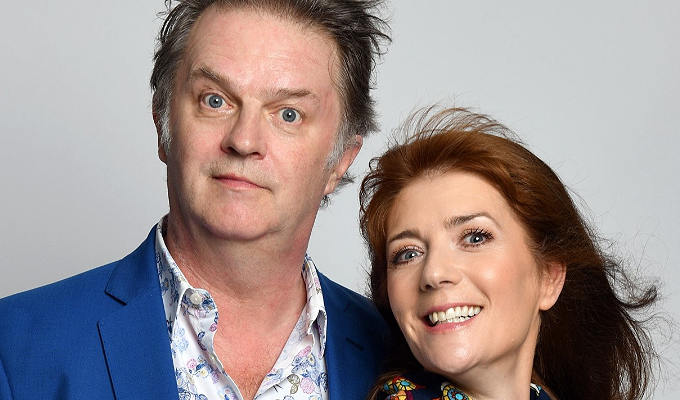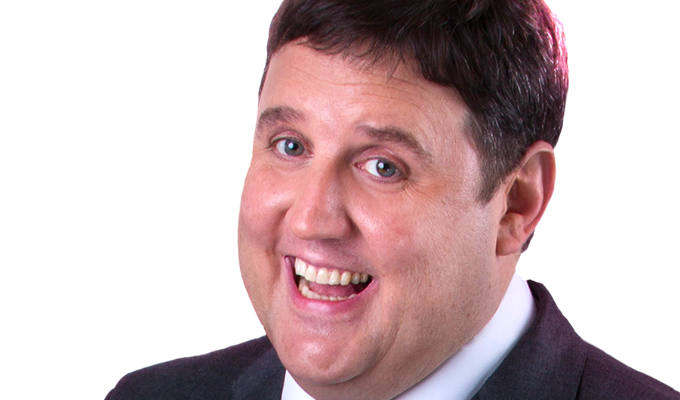Alas poor Eric...
Martha McBrier has a tough time on the Fringe
Free shows at the Edinburgh Fringe sell themselves. People are happy to buy into attending a show that costs nothing. What could be a better setting to do a show that’s experimental? Surely this has always been the spirit of the Fringe?
I was looking forward to my show Martha McBrier: I’m Eric Barthram, in which I would be performing as a man (reverse drag, I called it). I thought everyone would like the idea; gay men would surely find it appealing, lesbians would like it, anyone who enjoys drag would like it. I fantasised about needing crowd control.
Nobody was interested. I literally could not give it away. Flyering as Eric met with derision and suspicion. ‘You look stupid’ a young woman sneered. I felt sorry for Eric. To be fair, if you dreamed an identikit sex pest, the image would resemble Eric. When I spoke to people about the show they always asked why I was doing it. One gentleman, pointing to the reviews on the flyer said ‘I mean, if you’re that good, why not just do a show as yourself’. I’d never felt so stupid in my life.
On the first night, a Spanish woman pointed to an advert for the show showing a photograph of me. ‘She, she, lady, where?’ Unfortunately, Eric said something rude to her.
On the third night I sent a reviewer away, as there was no audience, only to be met with a veritable throng of ten people ten minutes later. ‘Have we got time to get drinks?’ they asked.
Eric was not instantly accepted. People appeared what can only be described as ‘weirded out’. I changed the show, and began by performing as myself, explaining the experiment, transforming into Eric as I spoke. This seemed to work. ‘I’ve cracked it’, I thought. Still though, audience numbers were peaking at seven. The show was excruciating with seven, and unbearable with less. Often people realising a show was in progress would leave, explaining that they had arranged to meet friends and had only came in for a drink. ‘Word of mouth’ recommendations were apparently not going in my favour.
August coincided with some health treatments that would have been inadvisable to postpone. As such I had to live eleven miles outside Glasgow, which meant a four hour round trip to Edinburgh. In not one performance of the show did I make enough in the donation bucket for my train fare. Not that I was in it for the money…
On Saturday in week three, two people came to see the show. I didn’t perform. I pretended I didn’t mind as other performers looked at me pityingly. I sobbed on the train, picking bits of beard glue off my face.
It’s said that in the third week of the Fringe, performers get ill. My blood pressure was 162 over 102. I had the complexion of a volatile substance abuser. The nurse asked if I was worrying about anything. I emailed the ever-patient Free Festival organiser Alex Petty and explained I would be pulling the show due to lack of interest. That’s when I started to feel sick.
The next day a friend called to congratulate me on my TWO reviews. Reviews? ‘They’re not four stars, but they’re really good. The reviewers obviously “got it”.’ I googled furiously, whilst repeatedly banging my head on the table. Sure enough, two very respectable reviews taunted me. Even if there was a mechanism for withdrawing from withdrawing from a show, was this enough to pull in the crowds?
The Edinburgh Fringe is a many-splendoured thing. Should a performer base a decision on high blood pressure or low audience numbers? How many people in a small room make a comedy show? With more than 600 free shows, how easy is it to stand out? If the impetus for the show is not there by the third week, is it going to arrive? How many stars pull a crowd? Suppose they gave a free show and nobody came? Despite these questions totalling only six, I am left with more questions than answers.
I am tempted, sorely so, to bring Eric back. He has 329 Facebook friends so he may yet catch on. I have ‘done Edinburgh’ before, but this year I learned three new things; stay in Edinburgh, don’t get sick and you really never know what’s going to happen.
Published: 26 Aug 2011






